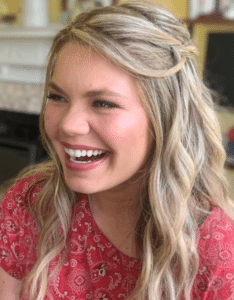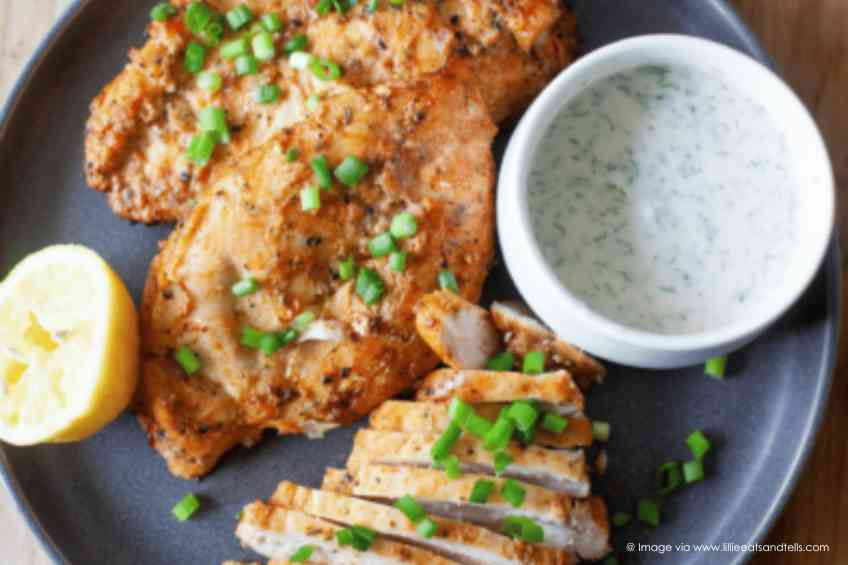Dieting is never easy. In fact, the vast majority of the time it fails to sustain long-term weight loss. When it does, dieters often feel worse about themselves than when they started. There are lots of reasons for this dismal record, including the way both men and women think about food. Casey Weiss, a certified holistic nutritionist, knows all about the challenges and problems associated with dieting, weight loss and nutrition. She recently spoke with WellWell on the dangers of diet culture and how each individual needs to take their own unique look at how they relate to food and their overall well-being.
Why is it so hard for people to eat well?
We’re so focused on the what with food. What do I have to eat? What should I not eat? What is good? What is bad? We put so much emphasis on the food itself without understanding the how and the why. It has become increasingly difficult and increasingly easier to eat well. There is more and more food readily accessible, more and more dry foods, and more and more ways to not think about our food. More brands are coming out with healthier options, casual places, and more ways to get fresh options delivered. We can see both ends of the spectrum developing, and it can be hard as a consumer to make those decisions for yourself. What I see as being so hard for people is we live in such a fast-paced world and we want this quick fix. What should I eat? What diet should I go on? What meal plan? All this without understanding why you may be overeating in the first place. Why are you turning toward that sugar? Why are you not prioritizing cooking for yourself? Why are you not sitting down for your meals? The environment in which you eat impacts your health, digestion and satisfaction.
Is there a mix-up between weight loss and nutrition?
Most women working with me want to lose weight and there is nothing wrong with wanting to lose weight. However, we need to have a deeper why for our health. If you’re just focused on a number on a scale, you’ll never get true fulfillment. We know weight fluctuates, things happen, and we need to have a deeper why, more energy, balancing hormones, longevity, preventing illness or treating illness. People get so stuck in this diet mentality and when we get stuck, this leads us so often to yo-yo. We need to not just focus on the food but how we’re nurturing our bodies and think about how we feel after and our mindset. If we are approaching this health journey just from how can I diet, how can I restrict, we’ll be stuck in that scarcity and that lack of mindset always thinking about the food we could have.
Can diets be productive in terms of weight loss or are they always going to fail in the end?
I haven’t seen diets that are focused on just weight loss that are successful long term. However, for example, maybe we try to incorporate more whole foods, like fiber. We’re focusing on food as a whole versus just for weight loss. That can be successful in losing weight and maintaining that weight loss. I’m not saying there aren’t ways to develop eating that can allow you to lose weight and maintain that weight loss. The difference is by following these 30-day plans, we are telling ourselves consciously or subconsciously we don’t trust our bodies enough to be able to listen to them, understand what they need and nourish them properly. Instead, we put our health and well-being in an app, in the 30-day challenge, in some random wellness influencer’s meal plan to tell us what to eat. In the short term, it feels good because we have this external validation. We’ve been brought so far out of our own bodies that we don’t understand our innate ability to listen to our hunger cues. It is important that you get reconnected with your body cues because your body is the smartest system.
Do you think dieting for many people is the same as nutrition?
Ultimately, when it comes to food, our bodies are so much more complex than in versus out. Your body is more than a math equation. Yes, calories impact our overall weight, but there are so many other things at play in our metabolism, nutrient absorption and the way we store fat and hormones. Blood sugar has become more of a hot topic and for good reason. Little things like the order in which you consume food affect your blood sugar and therefore affect the way that you do or do not store fat in your body. In scientific-backed research studies, you could have the same meal, but if you eat the carbohydrates, like the simple carbohydrates in the meal first, that will have a more adverse effect on your blood sugar than if you were to start that meal by eating protein, fat or fiber. If you start your meal by eating protein, fat or fiber, then move on to simple carbohydrates or sugars; it will help blunt a massive blood sugar spike and help you not have as much fat storage. It is the same breakdown of total calories of total macronutrients. It’s just the order in which you’re eating your food. My point with this is not for you to get obsessive and separate your meals and only eat the protein before. It’s just one of many examples of nuance to the food we’re eating and the environment in which we’re eating if we are stressed or not. If you are in a stressed state, you are not going to properly digest the food that you are trying to scarf down. You’re eating it too quickly. That affects your overall health, mindset and even your satisfaction. Overall, we need to be mindful of our intake. But it’s more complicated than that. That is why I want people to focus not on calories but on food quality with their mindset, their emotions with food and focus on having a better relationship with food and eating itself.
Do you know why we have that focus on food?
A lot of it is because of how pervasive diet culture is. Diet culture is the messages we received since we were kids about what we should or shouldn’t be eating. It’s not just women, but that’s who I’m speaking to a lot of the time. We get these preconceived notions of how we should be and how we should eat. What diet culture has done is it’s made us believe that we need to trust everything but ourselves and our bodies. Instead, what we need to do is to sign up for this weight loss program. We need to buy this type of food. We need to buy supplements. Diet culture’s entire purpose is to make us feel insecure about our bodies and to make us feel like we can’t do it on our own, and therefore we need to pay someone else to solve our problems. Once we understand this mindset and how it is so pervasive, we can start to rewire. It is not easy. That is why I do what I do, but we often think that becoming skinny or losing weight or gaining that muscle will solve our problem. But we need to understand and dig deeper into what we want to feel. We want to feel confident. We want to feel energized. We want to feel healthy. We want to feel happy. We want to feel we have a connection with others. If we focus on our health so we have our balanced blood sugar and hormones, we have better energy so that we don’t have crazy cravings and eat in secret.
Where does the issue of body shaming come into the whole element of nutrition?
A lot of what Western medicine has developed, especially in the U.S., is you get to the doctor, you weigh yourself, and then they assume certain things just by your weight. I am very apprehensive about that. I see a lot of women who come to me who are diagnosed with certain things or shamed in ways simply because of their body weight, and that is not okay. Your weight can indicate certain potential health conditions but isn’t the only factor. We need to make sure that we are advocates for our health. If your doctor is not treating you well and not making you feel safe, there are so many other great doctors out there. You need to go to someone who gives you answers, who listens to you and does not look at your weight and say you need to lose weight and that will solve all your problems. Weight loss the right way can lead to so many health benefits, and that’s fantastic. But we need to consider the totality of a human.
Why are there so many doctors who just take that simplistic approach?
Doctors are not extensively trained in nutrition. There are a million and one things that doctors do, but nutrition is generally not their area of expertise. I see doctors refer women out, and I have had clients who were referred out to seek a nutritionist to work on intake. Doctors are so busy and they don’t have enough time. The average doctor’s appointment is less than 10 minutes. They are trying to take all this data quickly, including your weight and height, and then give you an answer. It’s coming from a good place. Sometimes they put you on medication for weight loss. It is very different than my approach to my clients. I work with my private clients for three months. We have 45-minute sessions where we meet face-to-face. They get messaging access to me so they can text and voice notes. It is very different than when you only have that 10-minute appointment with the doctor. A doctor is trying to evaluate your top-line risks, what they can do and tell you in that short time. Especially in America, our medical system is not oriented toward preventative care. It is for treating things once they’ve already happened. Preventative care includes nutrition and how we move our bodies. Also, taking care of our body from a mental health perspective and investing in therapy for ourselves in our community with connection in our relationships.
What is holistic nutrition?
The difference with holistic nutrition is focusing on the whole body. When we talk about the world of nutrition and dietetics, it’s focused on our food and not necessarily the whole body. The difference between a holistic approach to nutrition and simply approaching good nutrition is the mind-body connection. Holistic nutrition emphasizes the connection between our physical health and mental, emotional, and even spiritual well-being. It emphasizes our thoughts, emotions and stress levels that can impact our digestion, nutrient absorption and overall health. It is all backed by science. It’s just understanding how science impacts our health and how it’s more than just food. Holistic nutrition is also very much about individualization and recognizing each person is unique. It’s not a one-size-fits-all approach, focusing on the whole person, considering you as a whole, not just you in isolation in a vacuum.
Why do you deal exclusively with women? Is it because women face different challenges than men?
There are a lot of similarities, but there are also a lot of differences. Women aren’t just small men. A lot of scientific studies on medicines are done on men, specifically white men. The dosages given to a woman are just a smaller version given to a man. However, we have vastly different body biochemistry. We have vastly different hormones and I resonate with women and women’s challenges. I work a lot with hormones. Hormones are something that has been very much overlooked and have such an interplay in how we feel and how we digest. Men generally follow the same 24-hour cycle. They follow their hormonal cycle like the sun. However, women’s hormonal cycle is like the moon, anywhere from 28 to 35 days. We get a period. That drastically affects our hormones each day. Therefore, our nutrition and approach to exercise and lifestyle should be different. I like being able to guide women in that way and also understand their unique emotional challenges.
Does diet culture impact women more than it impacts men?
Women have been greatly affected by diet culture. I think men are overlooked and they think it is so great to be a guy; you don’t have to have these problems and that’s not true either. Men are affected by diet culture in different ways. However, it’s been more pervasive and demanding of women.
How do people start? Should they get in touch with a nutritionist or just start on their own?
Dieting has made us believe that it has to be a strict regimen, which leads us to be strict and then go off and create this cycle. You deserve to feel good in the process and feeling good in the process will motivate you to continue. If you don’t feel like someone’s approach is correct, I want to empower you to find someone else, whether a nutritionist, dietician or endocrinologist. Whoever really sees you and listens to you and explains things to you and you are not talked down to. You deserve to have that knowledge. Having a good rapport with the practitioner you are working with makes you feel more comfortable, helps you to get answers and helps you to stick with your regimen. For me, it’s not about a regimen; it’s about creating a lifestyle you’ll enjoy. A lot of people have social media, so you can get a feeling of their overall vibe and create a rapport in that way. Don’t settle. As a consumer, you have every right to reach out to multiple people, get different opinions and understand your options.

About Casey Weiss
Casey Weiss is a certified holistic nutritionist and life coach dedicated to working with women to stop the diet roller coaster and finally achieve health from the inside out. She takes a holistic approach to helping women understand how to nourish their unique bodies, while also creating a better mindset with food and their bodies. She coaches women all over the world on how they can truly feel their best from the inside out and stress less about food so they can live their lives to the fullest.
To learn more visit: yourcaseforwellness.












